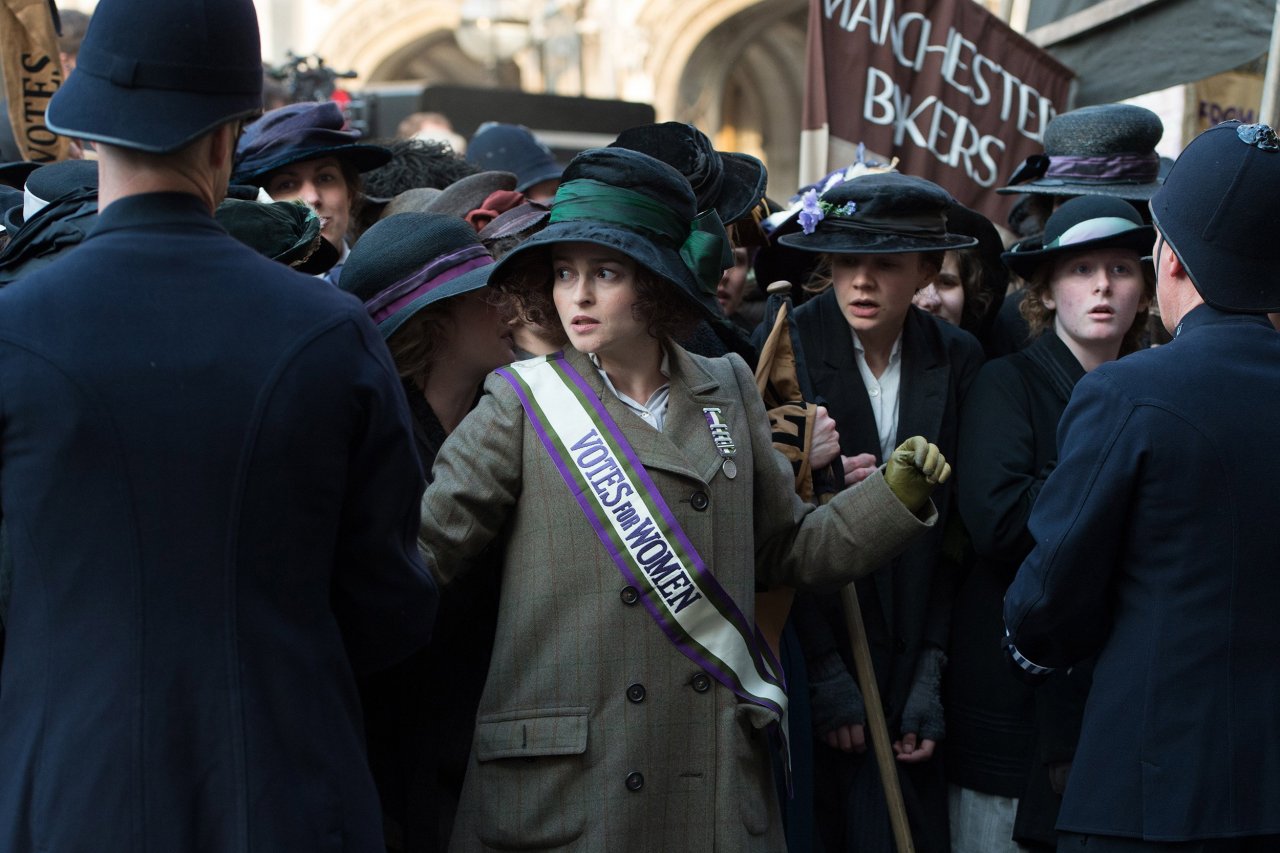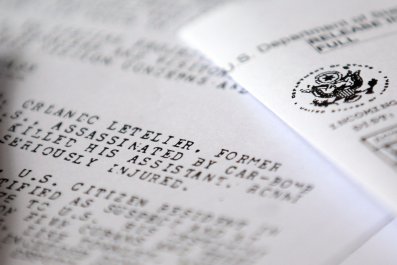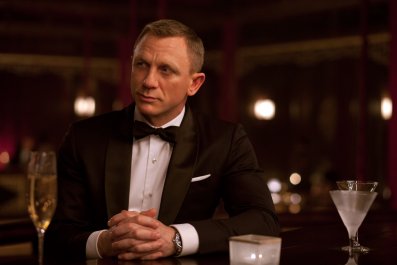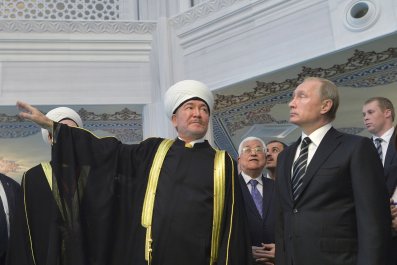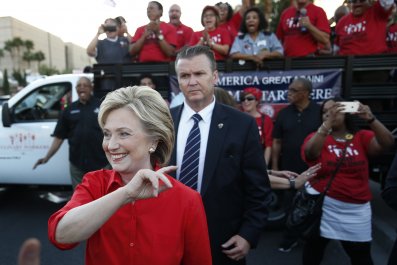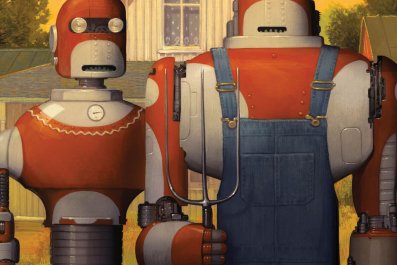Helena Bonham Carter is a scene-stealing chameleon, as natural playing manic sex-addict Marla Singer in Fight Club as she is the queen of England in The King's Speech. This month, you'll find her in early 20th-century England for Sarah Gavron's Suffragette, about the women who first risked beatings and prison time while protesting for the right to vote. Bonham Carter plays the lawbreaking, lawmaking Edith Ellyn (based on real-life suffragette Edith Garrud), an acid-tongued first-wave feminist who encourages her fellow protesters to bomb mailboxes and get in brawls with the police in the fight for suffrage.
The stakes for Bonham Carter with Suffragette were personal. Her great-grandfather Herbert Asquith was the prime minister of Great Britain from 1908 to 1916 and vehemently opposed women's suffrage. Two women were arrested for breaking his windows and attempting to kidnap his daughter, Violet, Bonham Carter's grandmother. "Sometimes feminism is depicted as a caricature of being aggressive and screechy and hysterical," Bonham Carter says. "[Suffragette] is instead very subtle, nuanced and quiet, and makes its point, with bold strokes, very slowly."
I saw the film at a theater recently here in New York and I have to say, I cried twice while watching it. But it felt good to have that outletting.
Oh, good. That's exactly what we're here for: to ease your heart.
Did you learn anything surprising from playing Edith?
I think what was great about [writer] Abi [Morgan] and Sarah was that they were very collaborative. Edith was originally called Caroline, but I based my character on this real-life woman called Edith Garrud, who taught the suffragettes jiu jitsu to defend themselves against the police who would be quite happy to rape and sexually abuse them, you know. And I thought that was so important. The funny thing about jiu jitsu is that you use the force from the attacker and put it back on them—that's the ultimate defense. She really did think this was a war to be fought. And there were things the suffragettes did that had a very militaristic template. She had her army, and they were all very organized and had discipline.
I know you have a bit of a fraught family history with the film. How did you contend with that?
One of those stupid arguments—that, unfortunately, my great-grandfather was a proponent of—was, "Women can't have a vote because they're not physically strong enough to defend the country were we to be attacked." And I thought that's such an idiotic argument of saying that we were inferior. And the jiu jitsu was a perfect counter argument. We have wit and bones and skill. I wanted to bring that.
But my main point, really, was [Carey Mulligan's character] Maude is a surrogate daughter, because my character doesn't have one. Edith's mother was a feminist, and [my character] has a need for an heir and somebody to educate and carry on for. So, she was a surrogate mother and an inspiration to Maude. Edith is there to say: Look, if you don't like the law, you can change it. She opens Maude's eyes to the fact that she has the power to control her own destiny. She's an inspirer as well as a mother.
I was reading about the feminist activist group Sisters Uncut hitting the film's London premiere and using it as a platform to protest reductions to domestic abuse services. You were quoted as saying it was the "perfect" reaction to the film.
I don't know that much about it, but there were quite a few women that were lying down on the red carpet and were protesting domestic violence [cuts]. Two women in England die of domestic violence a week. It's extraordinary. [The protests were] a kind of genius idea and a good use of a red carpet, I thought. They were lying down—literally lying down—for what they believed in, instead of standing up. I think it was a very just thing to do.
I would hope this encourages other stories to be told about this. I was having a hard time thinking of other films about suffragettes.
There literally aren't any. There was a show in the '70s that was really popular called Shoulder to Shoulder. I've got a friend who loved it. [Women's suffrage] would make for a great television show. Not this story, but one of. I mean, America was very ahead.
Off-topic, but if you could look into the glass from Big Fish and see how you were going to die, would you do it?
Not sure. I don't know. That's a good question. I think not. What do you think?
I think it would depend how I was feeling that day.
[Laughs] That's a funny answer.
Why do you think you wouldn't?
It's an interesting thing to know when you're going to die. And how much you reorganize and prioritize. I like not knowing. It's not that far from not finding out the sex of your child. There are very few things that we don't know is going to happen, you know? But if you knew that you had a few more months or 40 years, you have to throw that option away.
I was reading this interview you did with Daniel Radcliffe, and you told him that "fuck it" was your guiding philosophy.
[Laughs] Yeah. Ultimately, just fuck it. Get over yourself. A friend of mine and I did a play together and everything was going wrong at the end. I mean, everything. The music cues, the people...everything was going wrong. And I said, "Fuck it, let's dance." And he said, "If you ever write your autobiography, that could be the title."



